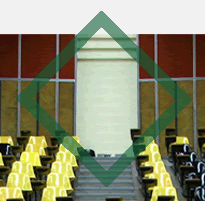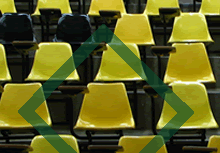"U": How should universities respond?
 |
 |
 |
|||||
 |
 |
||||||
 |
 |
 |
|||||
 |
 |
||||||
Maybe we lack consensus about participation in MOOCs because if we understand participation in an ambiguous fashion, as engagement broadly defined, we know MOOCs effectively “engage” people all over the world, creating ostensibly massive communities of learners and doing so in an overwhelming fashion. (After all, Sebastian Thrun’s Udacity has attracted 1.6 million students to date.) However, if we characterize participation more precisely, as a verifiable and quantifiable pedagogical element, we must recognize the curious potential of MOOCs to make visible the complex behaviors and practices that constitute the behaviors we have come to associate with “participation." If, instead, we envision participation as an outgrowth of technological innovation, then the diversity, complexity, and scale of various types of participation associated with MOOCs is potentially symptomatic of technology finally living up to our pedagogical aspirations. Regardless of how we define participation, all these questions remain about the way characterizations of participation inform the development, growth, and effectiveness of MOOCs—and the students who make them possible.
Questions remain.
- To what extent do our hopes for creating online communities of learners lead us to develop participation policies that obfuscate notions of difference?
- In what ways do learning outcomes and methods of assessment for evaluating participation in MOOCs lag behind in our current cultural and technological moment?
- How might more precise definitions of participation allow us to avoid commonsensical (and potentially normative) conceptions of knowledge, embodiment, and intellectual work in MOOCs?
[Go to Introduction to select another node]